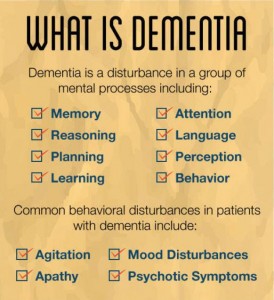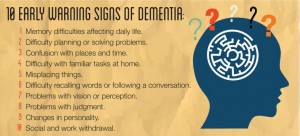Dementia: Care-giving tips
Dementia: Care-giving tips
Care-giving tips – Globally, there is a rise in the population of the elderly people with the generation of baby boomers having entered the age of 60 years. Old age is commonly associated with disorders such as high blood pressure and heart diseases. Along with this problem, it also leads to the slowing of the brain functions. Memory lapse is the most common brain dysfunction that people notice and are aware of. However, the attribution of memory lapse to old age commonly masks the onset of a disease called Dementia. Globally, India houses the second most number of individuals suffering from dementia with an estimated 4.1 million people suffering from it as per the ‘Dementia India’ report published by the Alzheimer’s and Related Disorders Society of India.
Communication is vital to our well-being. People living with dementia slowly lose their language skills and their ability to express themselves freely. This has a profound impact on their quality of life. There are many ways we can support people living with dementia to communicate more effectively. It is important to remember that how you say something is often more important than what you say. Patience and empathy are key.
Here are some tips to help communicate with people living with dementia.
1. Realise Your Challenge
Your parent or loved one will get worse with time. Communication will become more difficult. On the other hand, remember there will be good days and bad days. Be prepared. Care-giving tips
2. Be Patient
Communicating effectively is one of the greatest challenges seniors living with dementia face. Tolerate compassionately any delays, adversity or provocation.
3. Offer Reassurance
Listen attentively and empathize with their concerns even if they are delusional, confused, hesitating, or angry. Offer reassurance and support.
4. Minimize Background Noise
Noise can disturb and confuse people living with dementia. Find a quiet place to talk, away from the tv, radio, or people passing by.
5. Avoid Arguing
When talking, place yourself in front of them and speak in a clear and warm tone. Use simple sentences and give clients ample time to respond. Do not contradict what they are saying and don’t speak to them as you would to a young child.
6. Use Nonverbal Cues
Gestures, touch, and facial expressions can assist communication. Observe if their non-verbal cues indicate other messages, in spite of the words they are saying. Perhaps there are other feelings behind the words they are saying.
7. Be Precise
Avoid pronouns such as ‘they’ ‘he’ or ‘she’. Refer to people by their preferred names.
8. Keep it simple
Focus on one subject at a time; people living with dementia cannot handle two or three threads of conversation. If asking questions make sure they can be answered with a simple ‘yes’ or ‘no’.
9. Be Sensitive
When talking about them in their presence, assume they can understand everything you say. Don’t talk about them as if they were not there.
10. Take a Break
If you feel frustrated, take a break. You are not perfect! A person living with dementia is very capable of reading your body language. If you do not mean what you say they will know. Taking a break will benefit both parties.
Care-giving tips
If you wish to know more about Speech Therapy, kindly contact us at info@1specialplace.com
https://therakonnect.com/appointments/book/1specialplace
For more ideas check out our other blogs https://1specialplace.com/news/
- Effects of Psychotherapy on Parental Stress - November 21, 2023
- Couple’s Therapy: Navigating marital issues as a parent - June 9, 2023
- Talk Therapy for stuttering - May 31, 2023



Leave a Comment
(0 Comments)